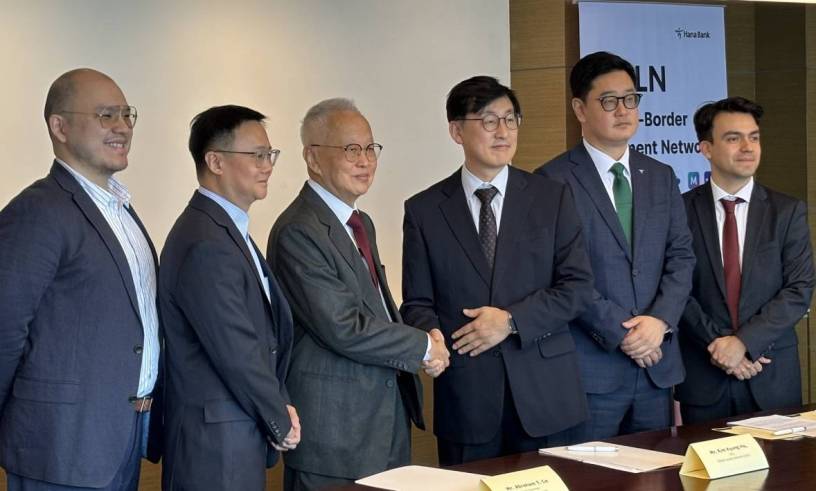From left: AUB officials led by executive vice presidents Jacob Ng and Wilfredo Rodriguez; chair Abraham Co with Kim Kyung-ho, GLN Int’l CEO; Inmo Koo, Hana Bank Manila manager and Marvin Flores, GLN global alliance business team lead
MANILA — Catering to nearly 1.5 million Korean tourists visiting the Philippines each year, GLN, the global payment network subsidiary of Korean banking giant KEB Hana Bank, has teamed up with Asia United Bank to facilitate cross-border quick response (QR) code payments.
“To ensure financial inclusivity of the tourists for the benefit of local merchants, I think it is necessary to enable cross-border QR payments. To achieve this mission, we have chosen Asia United Bank as the most capable and forward-thinking partner,” said Kim Kyung-ho, CEO of GLN International, a unit of Hana Financial Group.
Coming to the Philippines for the first time, Kim said he was impressed by the level of digitalization and modernization in the local retail experience.
“I can see sellers and buyers engage in QR code-based payments at every corner,” Kim said during the signing of the memorandum of agreement with GLN last week.
The QR cross-border payment, which is expected to go live in two to three months, means that Korean tourists can make QR payments to local merchants using the mobile wallets issued in their home country. AUB will function as the settlement bank, AUB vice chair Abraham Co explained to Inquirer.
“With the convenience of the GLN system, we are positioned to elevate the experience of tourists in this country. This will make their visit more memorable,” Co said.
The deal with GLN International is “another proof that AUB is becoming a partner for choice of digital payments players,” said Wilfredo Rodriguez, AUB executive vice president and head of operations and technology.
To compete against big local banks with extensive branch networks, Rodriguez said their deliberate strategy has been to use technology “not only as an enabler but also as a differentiator for its various products and services.”
Over the years, AUB has built a digital arsenal that includes Virtual Teller Kiosk, the country’s first branch queueing service; AUB PayMate, an all-in-one digital payment acceptance product; and e-wallet HelloMoney.
“These digital innovations may have piqued the interest of many in the digital payments space—from banks and fintechs, to the world’s payment giants such as WeChat, Alipay, the Liquid Group, Mastercard and Visa, to name a few,” Rodriguez said.
“Considering AUB and GLN’s DNA in digital innovation in banking, I firmly believe that our partnership and synergy in digital payments will enhance the convenience of tourists, benefit local merchants and contribute to the industry,” Kim added.
German Constantino, officer in charge at the Bangko Sentral ng Pilipinas’ payments policy and development department, said, “We confer with the view that improvements in cross-border payments can lead to reduced transaction costs and faster transactions processing that contribute to broader economic development and greater financial inclusion.”
He said interoperability and cross-border payments are “essential for fostering greater connectivity and efficiency in the global financial system.”

